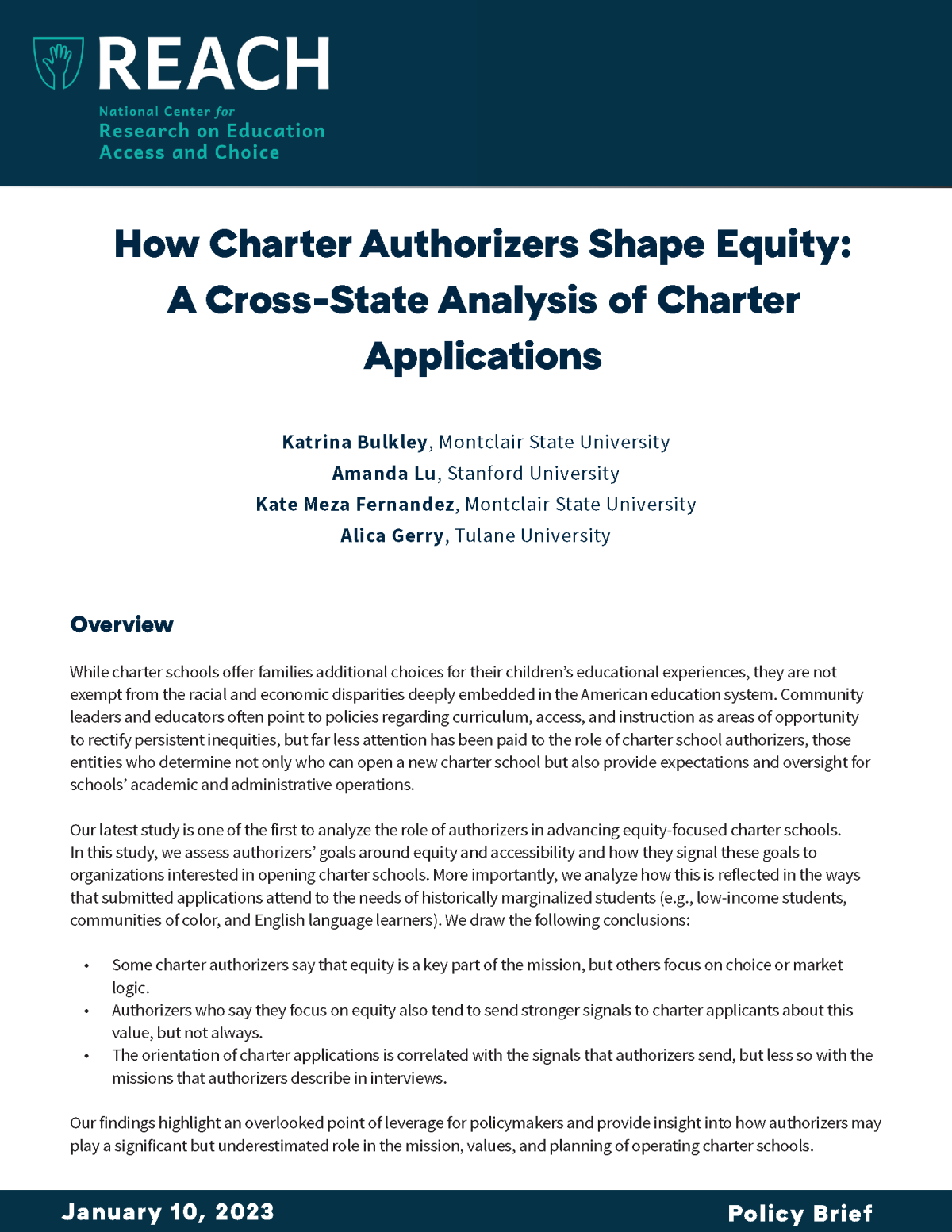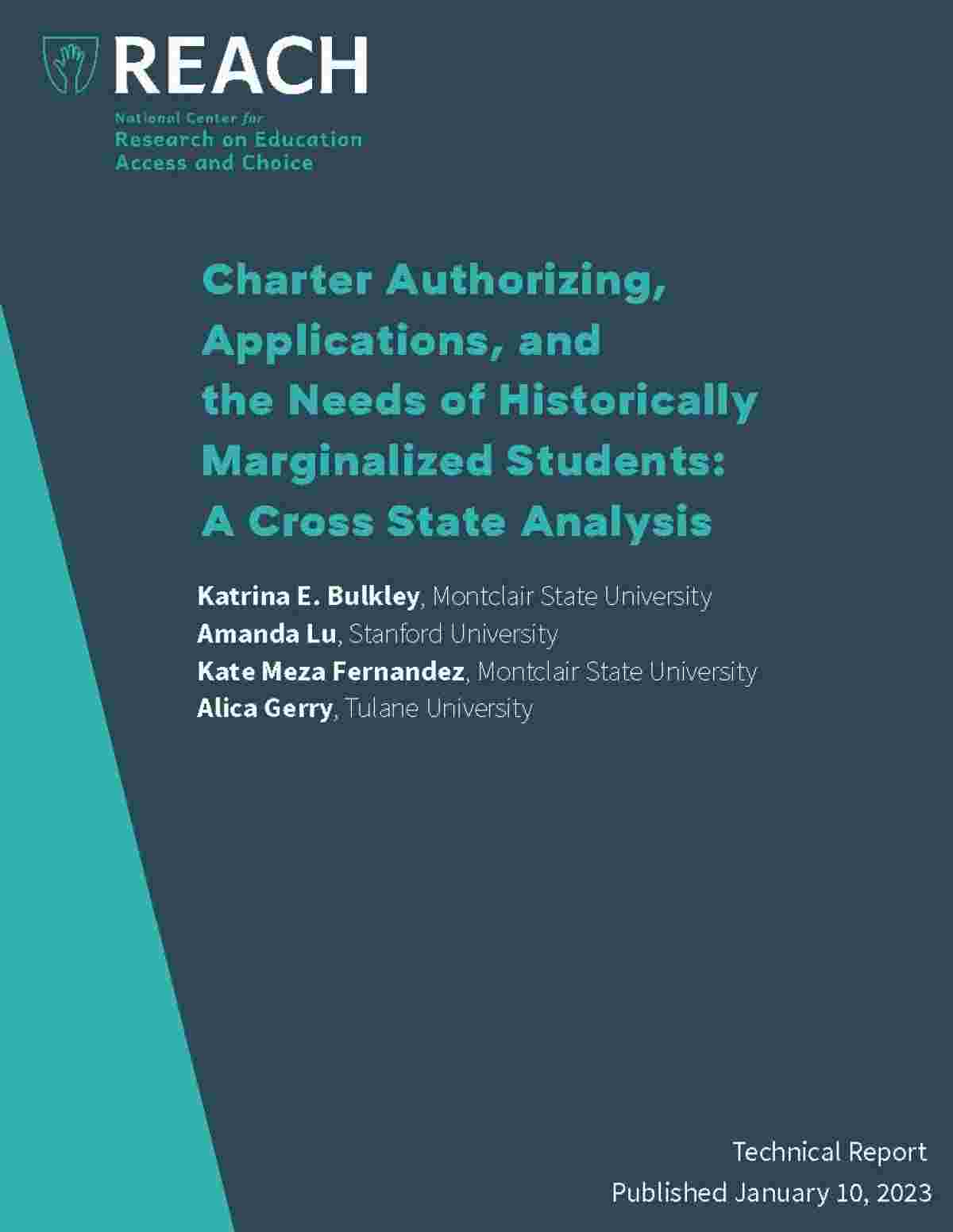While charter schools offer families additional choices for their children’s educational experiences, they are not exempt from the racial and economic disparities deeply embedded in the American education system. Community leaders and educators often point to policies regarding curriculum, access, and instruction as areas of opportunity to rectify persistent inequities, but far less attention has been paid to the role of charter school authorizers, those entities who determine not only who can open a new charter school but also provide expectations and oversight for schools’ academic and administrative operations.
Our latest study is one of the first to analyze the role of authorizers in advancing equity-focused charter schools. In this study, we assess authorizers’ goals around equity and accessibility and how they signal these goals to organizations interested in opening charter schools. More importantly, we analyze how this is reflected in the ways that submitted applications attend to the needs of historically underrepresented students. We draw the following conclusions:
- Some charter authorizers say that equity is a key part of the mission, but others focus on choice or market logic
- Authorizers who say they focus on equity also tend to send stronger signals to charter applicants about this value, but not always.
- The orientation of charter applications is correlated with the signals that authorizers send, but less so with the missions that authorizers describe in interviews.
Our findings highlight an overlooked point of leverage for policymakers and provide insight into how authorizers may play a significant but underestimated role in the mission, values, and planning of operating charter schools.

